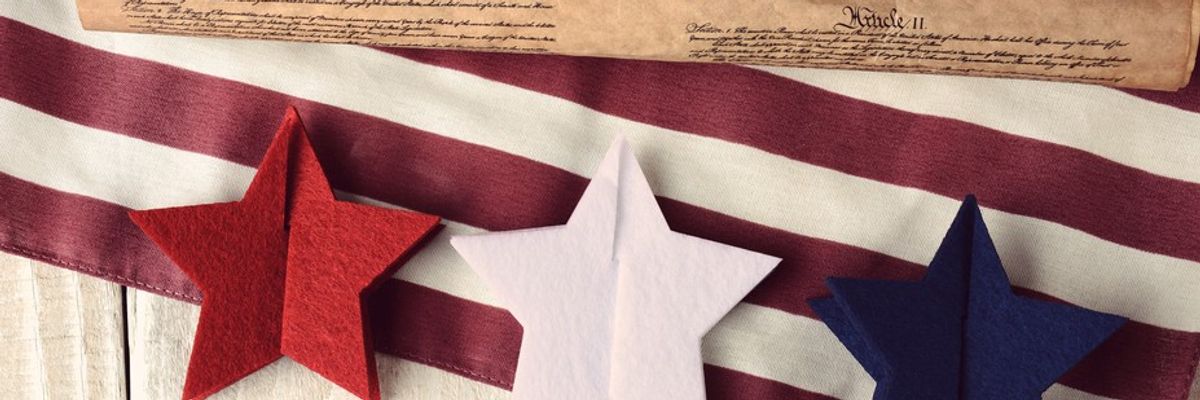When you survey the antics playing out daily on our national political scene, it's tough to find much to be thankful for on this Thanksgiving Day. That said, I find myself this year particularly grateful that the constitutional order established in 1787 still survives — severely tested, yes, but as yet intact.
With others, I have in recent years developed a lively appreciation for the wrongs woven into the U.S. Constitution as originally drafted and ratified. Even as amended, defects remain. (Down with the Electoral College, I say!) That said, the document’s value as the basis of American order and the principal guarantor of our liberty can hardly be overestimated. It forms a precious part of our collective inheritance as citizens. It binds us together as a nation. Without it, we are nothing.
Today, to an extent that I would once have considered unimaginable, the Constitution itself is at risk. So I find myself also thankful for the guidance that President Washington offered us in his Farewell Address of 1796. I have often quoted the Farewell Address for the wisdom it contains regarding America's proper role in the world. That wisdom has lost none of its salience with the passage of time — would that our present-day foreign policy establishment would ruminate on its passages and take Washington's counsel to heart.
Yet George Washington also used the occasion of his departure from public life to reflect on the importance of the Constitution. "To the efficacy and permanency of your Union," he wrote, "a government for the whole is indispensable." The Constitution, then less than a decade old, provided the essential foundation for that Union. The outgoing president urged his fellow citizens to think deeply about the imperative of honoring and protecting it.
"Respect for its authority, compliance with its laws, acquiescence in its measures," he wrote, “are duties enjoined by the fundamental maxims of true liberty."
The basis of our political systems is the right of the people to make and to alter their constitutions of government. But the Constitution which at any time exists, till changed by an explicit and authentic act of the whole people, is sacredly obligatory upon all. The very idea of the power and the right of the people to establish government presupposes the duty of every individual to obey the established government.
That the preservation of individual liberty should entail duties! That adherence to the Constitution should confer sacred obligations! How far we have come since 1796 — recently at least in the wrong direction.
That Washington and the rest of the Founding Fathers were mere mortals is certainly the case. We should lament their frailties and condemn their sins (while being mindful of our own). But when it comes to appreciating the Constitution, mark me down as siding with the man from Mount Vernon.
















